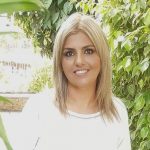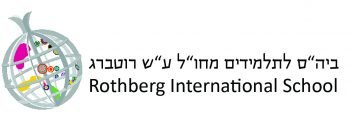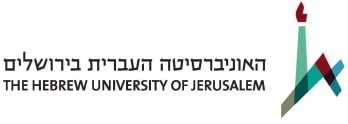 Prof. Amal Al Nagammy is a lecturer of written and conversational Arabic at Hebrew University’s Rothberg International School (RIS). She is also a respected international speaker and educator in Arab women’s rights and empowerment as a gendered approach to peacebuilding and conflict resolution, and is an active United Nations committee member for Women, Peace, and Security. A native speaker of both Arabic and Hebrew who is also fluent in English, Nagammy has degrees in both Education and Social Work.
Prof. Amal Al Nagammy is a lecturer of written and conversational Arabic at Hebrew University’s Rothberg International School (RIS). She is also a respected international speaker and educator in Arab women’s rights and empowerment as a gendered approach to peacebuilding and conflict resolution, and is an active United Nations committee member for Women, Peace, and Security. A native speaker of both Arabic and Hebrew who is also fluent in English, Nagammy has degrees in both Education and Social Work.
Research
Nagammy is currently finishing up her Ph.D. in Social Work, researching the Influence of the Israeli-Palestinian Conflict on Palestinian Women in Key Public Positions in the Palestinian Authority, on Their Role, and on the Status of Women in Palestinian Society in the Past and in the Present and Its Implications on the Future , at Ben-Gurion University of the Negev. Nagammy hopes to help define the roles of Palestinian women in the conflict and increase women’s impact on conflict resolution. “I believe that when women are part of the decision-making in conflict resolution, the conflict can be solved in a different way. The perspectives of Palestinian women provide a different approach.”
Nagammy notes that not enough research currently exists on this topic, and as a Palestinian who grew up speaking both Arabic and Hebrew in an uncommonly diverse Haifa neighborhood, she has the language and family background needed to gain the trust of the Palestinian women she is researching. “It is my responsibility to bring this topic out and make it more available to people – change people’s way of thinking about the conflict. Women can help.”
Teaching
This idea of changing how people think about conflict is central to Nagammy’s approach to language instruction: “I teach Arabic because I think language can be a bridge for culture and conflict resolution. You can bring a different perspective through the language – connect people. I’ve been doing this for more than 15 years.”
Eye-Opening Experience
She observed the power of language to effect change within her very first year of teaching. In 1999, as the first teacher of Arabic in a Jewish middle school in Haifa, she was faced with a sixth grader who called her a terrorist. She held an after-class meeting with the student’s parents, and during the meeting, she was surprised to receive an apology from the father, of Israeli-Russian background. He said, “I’m the one who is responsible. I told my son that all the Arabs are terrorists, but I did not realize you were also an Arab. Please forgive me.” By the end of the year, this student was the best in the class. Nagammy clarifies that “as a teacher of Arabic, I teach not just one generation. I give students the opportunity to decide on their own who the Arabs are as a people, and they will affect everyone around them.”
Biggest Challenge
Nagammy feels that the most challenging thing about teaching Arabic is not grammar and mechanics, but worldview. “I try to help students learn who the Arab people really are through the language, the beauty – to enjoy it while they learn, not to hold in their head the image from anti-Arab propaganda. I try to make it a bridge.” She sees Arabic language learning as a way to “connect people to people.” No matter whether she is teaching beginning Arabic students or students who already have a master’s degree in Arabic, she aims to open their way of thinking and communicating through insightful readings, discussions, and debates. She has taught students from all over the world in a whole host of disciplines, such as political science, sociology, gender studies, and more.
Recent Activism & Volunteer Work
- Femicide Across Europe – COST Action IS-1206 (since 2014): Gives lectures and participates in panels about honor killings in Palestinian society and in other areas of the Arab world
- Kivunim: New Directions – Jerusalem, Israel (since 2008): One of the first Arab Muslims to hold a senior position in Jewish Education
- Israel Association of Baseball (since 2015): One of the initiators for Baseball for All, a program to bring Jewish and Arab students together to learn a new sport and make new friends
- United Nations Committee Member (since 2000): Israel committee member for the United Nations Security Council Resolution 1325 on Women, Peace and Security, where she speaks at conferences and participates in panels
Education
- Ph.D. Candidate, Social Work, Ben-Gurion University of the Negev (2017)
- Master’s Degree in Social Work, Ben-Gurion University of the Negev (2009)
- Master’s Degree in Education Systems, The Academic College for Education in Israel (2005)
- Bachelor’s Degree in Education, Arabic and Hebrew Languages, The Arab College of Education, Haifa (1999)

